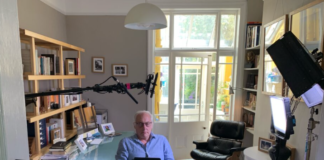- Rocket man - 2nd March 2026
- Death wish two - 2nd March 2026
- News to celebrate! - 1st March 2026

After a 23 year career with the BBC, and 40 years in journalism, (when he was trained to use clear and simple language, avoiding jargon), our Editor, Welshman Phil Parry, has (almost) become used to the abuse he suffers, although this has become worse recently with the rise of the internet, and it is now highlighted by the latest extraordinary salvo launched at the Welsh Government (WG).
Earlier he has described how he was assisted in breaking into the South Wales Echo office car when he was a cub reporter, recalled his early career as a journalist, the importance of experience in the job, and made clear that the ‘calls’ to emergency services as well as court cases are central to any media operation.
 He has also explored how poorly paid most journalism is when trainee reporters had to live in squalid flats, the vital role of expenses, and about one of his most important stories on the now-scrapped 53 year-old BBC Wales TV Current Affairs series, Week In Week Out (WIWO), which won an award even after it was axed, long after his career really took off.
He has also explored how poorly paid most journalism is when trainee reporters had to live in squalid flats, the vital role of expenses, and about one of his most important stories on the now-scrapped 53 year-old BBC Wales TV Current Affairs series, Week In Week Out (WIWO), which won an award even after it was axed, long after his career really took off.
Phil has explained too how crucial it is actually to speak to people, the virtue of speed as well as accuracy, why knowledge of ‘history’ is vital, how certain material was removed from TV Current Affairs programmes when secret cameras had to be used, and some of those he has interviewed.
He has disclosed as well why investigative journalism is needed now more than ever although others have different opinions, how the current coronavirus (Covid-19) lockdown is playing havoc with media schedules, and the importance of the hugely lower average age of some political leaders compared with when he started reporting.

Modern inventions are not all good.
In my early years as a trainee reporter from 1983, on the biggest-selling paper produced in Wales, the South Wales Echo (SWE), the abuse following (or during the writing of) reports was rare, although it did happen.
Now these awful comments come thick and fast, and the insults hurled at politicians in the Welsh Government (WG) only serve to underline this.
It seems to be connected with the rise today of the internet.
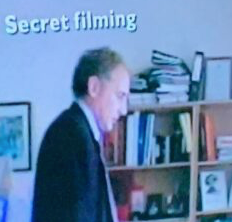
In the old days people used to have to stop and think, put pen to paper, find a stamp, before sending in a letter of complaint (they often seemed to use green ink!).
Now with Facebook (FB), X (formerly Twitter), or in the comments sections of media outlets, this can be done almost instantaneously.
Another reason could be that these awful comments are published with the authors often using a pseudonym, so they are anonymous.
It is probably easier to say these terrible things if people don’t know who you are.
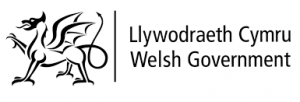
 All of this is put centre stage by notifications today attacking the Welsh First Minister (FM) Mark Drakeford (who has suddenly announced he is to resign), and his fellow ministers.
All of this is put centre stage by notifications today attacking the Welsh First Minister (FM) Mark Drakeford (who has suddenly announced he is to resign), and his fellow ministers.
His government has been compared to a ‘parish council’ it is an “absolute failure”, and the 20 mph speed limit is one of their “‘pet’ projects (that are NOT really needed) …”.
In fact the speed limit policy has provoked an extraordinary level of behaviour.
Mr Drakeford has revealed that he, and some of his ministers, have even received death threats, and the police opened an investigation into “reports of malicious communications”.
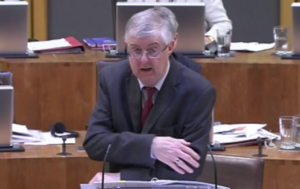
Mr Drakeford told the Welsh Parliament/Senedd Cymru (WP/SC), that apart from the death threats, he had also been sent “vile” messages, and supporters of the lower speed limit deserved to be treated with respect.
But unfortunately, he is not alone.
Comments about me have also had to be referred to the police for investigation.

A Marc Winchester said on Twitter/X, in a tweet which has since been deleted: “I’ll whack him (me)“, and the definition of the verb ‘to whack’ in the Urban Dictionary is: “to murder someone”.
He had links to the failed company No Debt Ltd and when it was wound up the liquidator said: “At the date of liquidation the Company’s draft accounts for the year ended 30 June 2015 suggested that the former director… of the Company… Mr Winchester (owed) the Company… a collective amount totalling £317,406 … Mr Winchester was declared bankrupt on 23 May 2017”.
This Mr Winchester is a family member, although it appears he is another part of the Winchester ‘club’.
 But there is a connection with Mr Winchester, too, through another crashed business which also hit the headlines for all the wrong reasons – Falcon and Pointer Ltd. The BBC reported that the licence to practice was taken away after more than 40 million nuisance calls had been made. The item said: “Falcon and Pointer Ltd used automatic dialing technology to make the calls about mis-sold payment protection insurance (PPI). The Claims Management Regulator (CMR)… (said)… The firm set out to ‘plague the public and rip off consumers’…”
But there is a connection with Mr Winchester, too, through another crashed business which also hit the headlines for all the wrong reasons – Falcon and Pointer Ltd. The BBC reported that the licence to practice was taken away after more than 40 million nuisance calls had been made. The item said: “Falcon and Pointer Ltd used automatic dialing technology to make the calls about mis-sold payment protection insurance (PPI). The Claims Management Regulator (CMR)… (said)… The firm set out to ‘plague the public and rip off consumers’…”
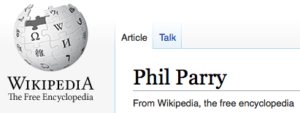
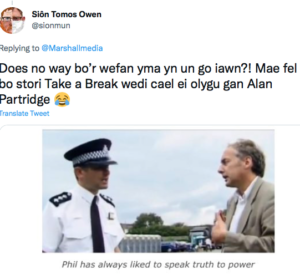 If anything, the torrent of insults is increasing!
If anything, the torrent of insults is increasing!
Attempts have been (thankfully unsuccessful!) to close down my website, The Eye, because people didn’t like what was said there.
My Wikipedia entry has been vandalised several times, and in one instance the words ‘tool’ and ‘knob head’ were inserted. I have also been compared on Twitter/X to the comedy broadcaster Alan Partridge.
The Wikepedia entry has now been restored to its original form, after officials removed the abusive words.
The Alan Partridge comment was by a Sion Tomos Owen whose blog describes him as: “…a bilingual TV and Radio presenter, illustrator, writer and creative workshop tutor…”.

Mr Owen said in Welsh: “There’s no way that this website (The Eye) is for real?! It’s as if a Take a Break (light magazine) story has been edited by Alan Partridge” (laughing emoji).
Another remark which concerned a television ‘reporter’ who had posted pictures of herself on FB or Twitter in skimpy clothes, is sadly typical of the insults I constantly receive: “Your article on Ellie Pitt was bordering on mysogynistic bullying, a really pathetic article written by a bitter individual who was a complete failiure as a BBC correspondent and also loved bashing the Catholic Church with your disgraceful Panorama programme”.

Indeed accusations of being ‘misogynistic’ (which is the correct spelling) or ‘misogynist’, are a constant refrain among those who hurl offensive comments (including from a person who has now been jailed because of his pedophilia), if factual stories are published with the targets happening to be women, yet these are potentially libellous words and the description is also provably wrong.
In the past I have also been accused online (incorrectly) of being a “bastard” (many times), an “anti-devolutionist wanker”, “pure scum”, a “liar” (also many times) a “little git”, and (correctly) a “nosey git”, “irritating”, or a “nuisance”. But these remarks come amid many others. Too many, in fact, to mention.

I rarely sue (although I do sometimes) unless the online message is particularly outrageous, and contains a libel (which most of them do).
Some can be rebutted in court using an “honest comment” defence (formerly known as “fair comment”), however most cannot, which means that any libel case is likely to be successful.
Perpetrators of this abuse appear to be unaware of the legal ramifications of their statements, and say the most appalling things online (which, of course, have been PUBLISHED to a third party so the RULES APPLY!).

You have to develop a thick skin knowing you are going to to be the subject of these insults, but are still determined to pursue journalistic investigations.
It seems that high-profile politicians must develop one too, when their policies are unpopular…
The memories of Phil’s decades long award-winning career in journalism (when abuse was fairly rare at the beginning) as he was gripped by the incurable neurological condition, Hereditary Spastic Paraplegia (HSP), have been released in a major book ‘A GOOD STORY’. Order it now!
Publication of another book, however, was refused, because it was to have included names.
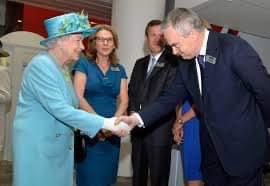
Tomorrow – as more household names come out in support of disgraced presenter, Huw Edwards, who was honoured by the Queen yet venerated by some Welsh nationalists, Phil looks at how the memory of controversial events fade with time, but that people need to be reminded of them.











